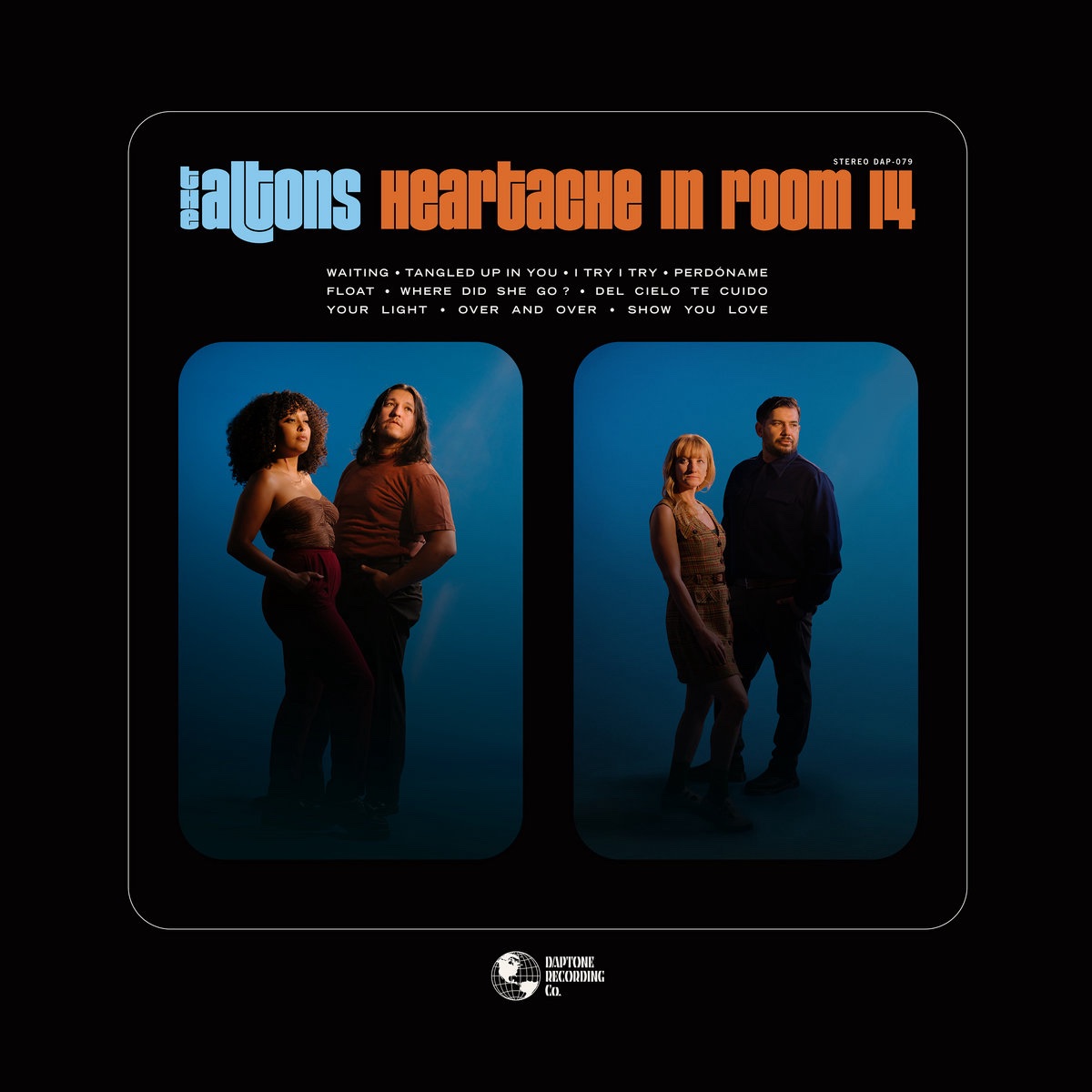The Altons
Heartache in Room 14
DAPTONE/PENROSE
You wouldn’t know it by listening to their new record, but Southeast LA soul group The Altons started as a snarling punk band. It’s been many years since those formative origins, and their evolution has been staggering—gone are the aggressive power chords and simple melodies of the old days, replaced with complex melodies, ebullient strings, controlled dissonance, and soulful, emotive vocals. Their sophomore album Heartache in Room 14 is the culmination of many years of development for the band. Founded a decade ago by vocalist/guitarist Bryan Ponce, it took the addition of singer Adrianna Flores to really nail their identity as an alt-soul outfit. Flores’s background in soul integrated beautifully with Ponce’s emotive guitar style, creating the signature Altons sound exemplified on Heartache.
The band’s distinct combination of Latin soul, Motown blues, psychedelic rock, and bolero, filtered through vintage-inspired production, blends like a glowing swirl of colors on the new LP. The lush organ chords used in many of these songs by their hometown invoke a feeling of nostalgia and longing that feels uniquely Southern Californian. Heartache starts with the atmospheric, rocksteady-influenced “Waiting,” a song about palpable longing and the emotions that overtake us when our cherished need for attachment is severed. Flores’ sensitive vocals and Ponce’s own crooning melt in perfect unison, buoyed gently by the warm glow of the track’s distinctly ’60s-era organ—its cozy effect feels like a hug in sound form, softening the impact of its lyrical meditation on loss and heartbreak.
The tracks that follow, “Tangled Up in You” and “I Try, I Try,” reaffirm the themes explored on Heartache. The former cut is a smooth soul song with pleasant reverb that pushes against Ponce’s sultry vocals, which remain at the forefront; on the latter, Flores sings solo with guttural force. The band’s songwriting ability gets most interesting on “Float,” with its dissonant orchestral ending, bestowing the track with intrigue and power. The uneasiness of that final section almost feels like a reference to their punk-rock past, showing listeners that they’re more than just a Brill-Building nostalgia act.
The most surprising part of Heartache is “Del cielo te cuido,” a romantic Spanish-guitar bolero, which is certainly atypical for a soul album. Its light, Phrygian-like melody is intoxicating, reminiscent of Eydie Gormé y Los Panchos’ “Sabor a Mi.” It’s this type of risk-taking and affirmation of their Latino roots that make The Altons so unique—they defy genre labels, creating a compelling soul record with a punk-rock heart.







